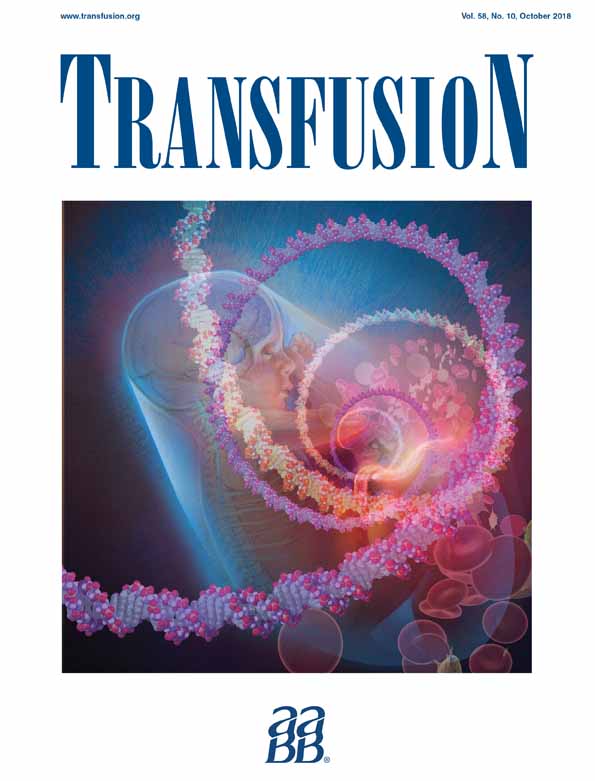Neutropenia and monocytopenia in recurrent anaphylactoid reactions after red blood cell transfusions in a woman with immunoglobulin A (IgA) deficiency and anti-IgA
Abstract
BACKGROUND
Transfusion-associated anaphylaxis has been associated with anti-immunoglobulin A (anti-IgA) of IgG class in patients with IgA deficiency. In recent years, however, the frequency and clinical impact of this syndrome has been questioned. We present a case of recurrent red blood cell (RBC) transfusion–associated anaphylactoid reactions (rigors, hypertension, transient monocytopenia, and neutropenia) associated with anti-IgA.
CASE REPORT
An 88-year-old woman developed anemia after a traumatic right humerus fracture. After receiving approximately 100 mL of RBCs she developed rigors and hypertension; her absolute neutrophil and monocyte counts decreased by 73 and 100%, respectively. All symptoms and signs resolved, and her blood counts normalized. A second RBC transfusion was given, with recurrence of rigors, hypertension, neutropenia, and monocytopenia (69 and 100% declines, respectively), along with fever. All tests for hemolysis were negative. She then received two transfusions of washed RBCs, without incident. The patient was found to be deficient in IgA (<0.05 mg/dL). Further, anti-IgA of IgG class antibodies were detected in high levels by enzyme-linked immunosorbent assay (>1000 U/mL).
We reviewed case reports, case series, and reviews of IgA deficiency–associated reactions, examining whether hypertensive reactions and acute neutropenia and/or monocytopenia have been associated with anti-IgA reactions.
RESULTS
Reports of reactions associated with anti-IgA emphasize hypotension and are generally classified as “anaphylactic or anaphylaxis.” No previous reports described neutropenia or monocytopenia.
CONCLUSION
Our case suggests that adverse transfusion reactions associated with anti-IgA of IgG class may sometimes be characterized by anaphylactoid features such as rigors and hypertension, with transient monocytopenia and neutropenia.
CONFLICT OF INTEREST
The authors have disclosed no conflicts of interest.




